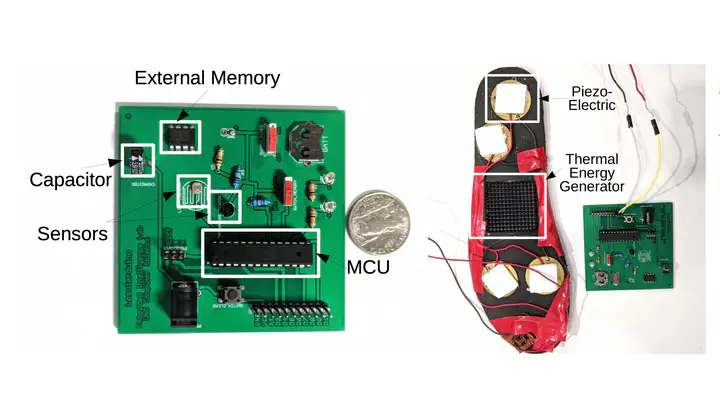
Abstract
In this paper, we argue that the fusion of machine learning (ML) and batteryless computing systems enables true lifelong learning in mobile devices. The lack of learning from experience in current batteryless systems makes them ignorant of changes in their operating environment. Due to high communication cost, latency, privacy, and dependency issues of offloading computation to an edge device, on-device training is a solution for batteryless systems to learn and adapt in dynamically changing environments. Combining batteryless systems and ML is however a challenging task. Sporadic energy supply and limited resources in a batteryless system cause execution-discontinuity and data-constraints in ML processes. To understand these challenges, we identify suitable ML tasks for such systems and study the energy producers, i.e., harvesters, and consumers, i.e., intermittently executable tasks in a ML pipeline. Using a trace-driven simulation, we demonstrate the feasibility of on-device training of a batteryless learner.